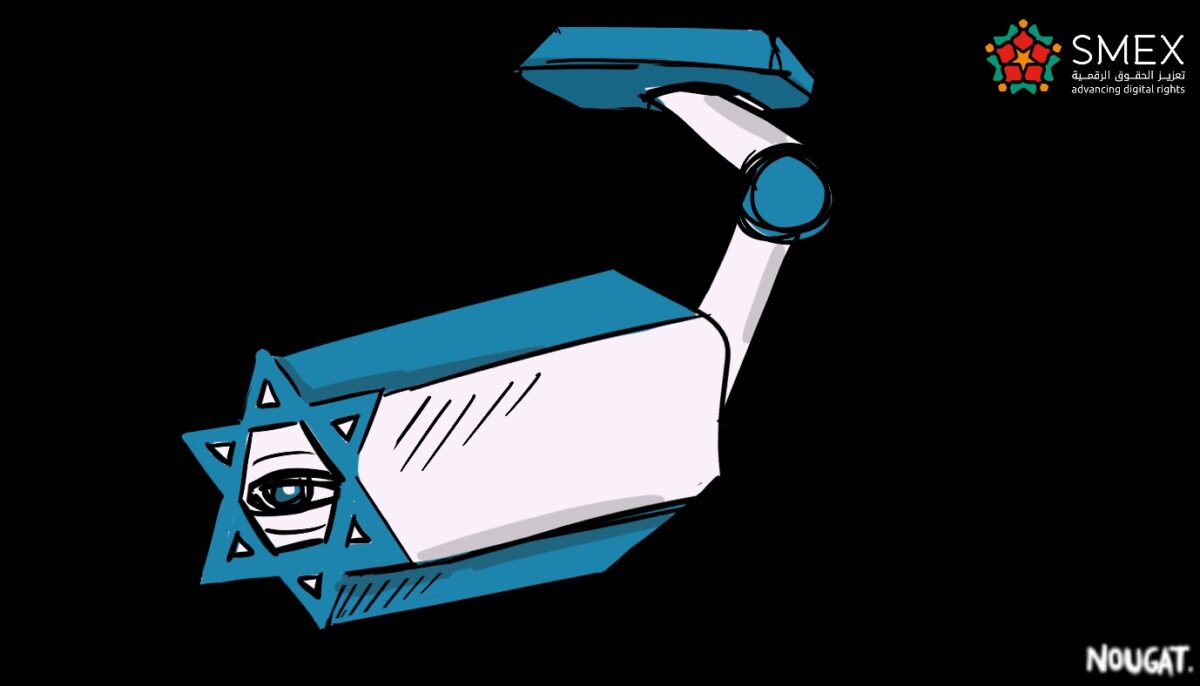On October 7, 2021, Israel inaugurated its pavilion at Expo Dubai 2020, after the United Arab Emirates extended an invitation to Israel to partake in the six-month world fair in 2019, a year before signing the Abraham Accords.
An estimated 25 million visitors are expected to visit the Expo, which runs from 1 October 2021 to 31 March 2022, and which is seen as an opportunity for Israel, one of the world’s most advanced surveillance states, to polish its image before global visitors — a promotional stunt on behalf of the UAE.
Dubai police have deployed fleets of Israeli drones, provided by Israeli aerial data-collection company Airobotics, to hover over the exhibition for security purposes. At the same time, the police announced their permanent collaboration with the Israeli police force to counter “crime networks” in the UAE, as reported by The Telegraph.
Trade in surveillance technology between the two dates back to at least 2007, when Abu Dhabi authorities sealed an $816m contract with Israeli-owned AGT digital security company, to “protect all the vital facilities within the emirate of Abu Dhabi,” as reported by the Middle East Eye. AGT and its local UAE partner companies — Advanced Integrated Solutions and Advanced Technical Solutions — were contracted to develop the Emirate-wide surveillance initiative for $600m in February 2011. Known as Falcon Eye, the initiative was launched in July 2016, with thousands of cameras installed on roads, facilities, buildings and the international airport.
In a more recent collaboration, the two countries have announced a joint deal to design advanced, unmanned military vessels that would be able to operate semi or fully autonomously. Considering both countries’ heavy investment in and deployment of surveillance technology, as well as their shared history of human rights abuses, their burgeoning military-security enmeshment seriously threatens the digital privacy and security of UAE citizens, and the Arabic-speaking region at large.
How can one of the world’s most advanced surveillance states be trusted with the data currently being collected at the Dubai Expo? A recent study by 7amleh — The Arab Center for the Advancement of Social Media — revealed that CCTV and digital surveillance have exponentially increased in East Jerusalem and the West Bank following the occupation’s violent attacks on Palestinians in April and May of 2021.
“The privatisation of the Israeli security apparatus, and the mushrooming of private companies founded by ex-defence and ex-Mossad agents, is a threat not only to Palestinians […] but also to all Gulf citizens, with Israeli spyware sold to dictatorships across the Arab world,” warned Madawi Al-Raheed, a Saudi-British professor whose phone was targeted by Israeli spyware Pegasus in 2019.
The Israeli surveillance industry, with Candiru and NSO Group at its forefront (although they are certainly not the only ones), is an insidious threat to the lives of journalists and activists working in the Arab region and beyond. The companies have been reported to sell spyware to the UAE, as well as Saudi Arabia, Morocco and Bahrain. Earlier last month, the US Department of Commerce blacklisted NSO Group and Candiru thus “restricting the export, reexport, and in-country transfer of items” by these companies. While adding them to the US Entity List can limit their activity, it is probable that NSO and Candiru will continue to operate under different names.
In October, UAE’s ruler Sheikh Mohammed was found to be using Pegasus spyware to hack his ex-wife’s phone, which led to the termination of his contract with the Israeli NSO Group. The UAE had previously used the spyware to infiltrate the phones of journalists, activists, lawyers and dissidents, within the Emirates and beyond. Forbidden Stories’ investigation revealed that prominent Emirati activists Ahmed Mansoor and Alaa Al-Siddiq were among the successfully hacked targets.
A promotional video of the Israeli Pavilion, claims that this is a golden opportunity for the two countries to strengthen ties, while finding a common ground beyond their differences. The very design of the space is intended to promote the Israeli occupation’s hypocritical ambitions towards “no walls and no boundaries.” This is the same occupying power that in 2002 began building the 708 km impenetrable “Separation Wall” which sliced through Palestinian territory like a butcher’s knife. The Commissioner General of the Israel Pavilion boasts it as a “completely open [space]..through which you can see the horizon from end to end,” an almost laughable claim considering the terrorization of Palestine “from its river to the sea.”
“Both the UAE and Israel are shamelessly using the World Expo in presenting a ‘prettier face’ to whitewash and distract attention from their grave human rights violations,” said the Palestinian BDS National Committee in a statement. The BDS Movement has renewed its call to boycott the Israeli pavilion at the Expo. SMEX urges all visitors to do the same.



